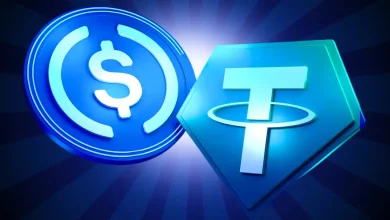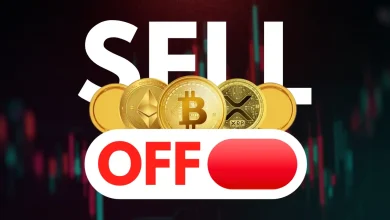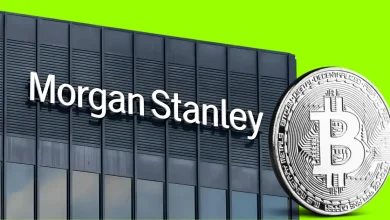
Bank of Thailand freezes around 3 million accounts to combat scams.
Disruptions affect regular users, small businesses, and expats.
There was a rise in interest in Bitcoin and cryptocurrencies as alternatives.
The Bank of Thailand has taken a bold step against financial fraud, freezing around 3 million bank accounts linked to scam activities.
While the move is aimed at criminal networks, the impact has spread to regular users, small businesses, and expats. The disruption has sparked interest in Bitcoin and other cryptos as people look for safer alternatives.
Millions Of Accounts Frozen Amid Crackdown
Thailand has seen a surge in online scams, with victims losing more than 6 billion baht over the past year. Authorities point to the growing use of “mule accounts”, inactive or newly opened accounts exploited by fraudsters to move illegal funds as the main reason for the crackdown.
Beyond the scammers, many regular users are also affected, disrupting businesses and daily payments.
“We urge the public not to panic. The suspension is only temporary and will be lifted once checks confirm no wrongdoing.” said DES permanent secretary Wisit Wisitsora-at according to The Bangkok post.
New Daily Transfer Limits
In order to control the situation, The Bank of Thailand has set daily transfer limits: 50,000 baht for the elderly and minors, 200,000 for most users.
The 50,000 baht cap is designed to protect the elderly, who are common targets of fraud. But many retirees who rely on larger transfers for medical bills or family support say the restrictions are creating new hardships.
Banking Crackdown Sparks Debate
Experts are divided on Thailand’s banking crackdown. While daily limits follow global trends and reduce scam losses, freezing millions of accounts risks public trust and may push users toward unregulated fintech or crypto.
Scam complaints have tripled in two years, costing 6 billion baht. Authorities warn that more freezes may follow as they track “mule accounts” linked to cross-border fraud.
Small Businesses and Expats Also Hit Hard
Small businesses in tourist hotspots and expats also faced disruptions from frozen accounts, prompting more cash withdrawals and alternative financial services.
However, to ease the impact of its crackdown, the Bank of Thailand is taking steps.
By 2026, banks will use biometric verification and AI-driven fraud detection. Partnerships with tech firms are also underway to allow real-time transfer limit adjustments, easing the burden for high-value users.
Bitcoin To The Rescue?
Some in the community see Thailand’s banking crackdown as a boost for Bitcoin. Investor Daniel Batten joked it was “free Bitcoin marketing,” while Jimmy Kostro from the Thailand Bitcoin Learning Center called it a story that should go global, adding, “Thank goodness for Bitcoin.”
Balancing Innovation With Regulation
Thailand is already testing crypto-friendly policies.
It recently launched TouristDigiPay, allowing foreign tourists to convert cryptocurrency into baht for payments. The program includes QR code payments, strict KYC checks, monthly limits, and operates within a regulatory sandbox to ensure oversight and prevent financial crime.
These moves could increase adoption of Bitcoin and digital assets in the region.
Never Miss a Beat in the Crypto World!
Stay ahead with breaking news, expert analysis, and real-time updates on the latest trends in Bitcoin, altcoins, DeFi, NFTs, and more.
FAQs
Thailand froze accounts to combat financial fraud and “mule accounts” used by scammers, who have stolen over 6 billion baht in the past year.
The freeze disrupted daily life for many, including small businesses and expats, causing difficulties with payments and prompting a search for alternatives.
Some see Bitcoin as a safer alternative for transactions, especially as the crackdown highlights the fragility of traditional banking systems.
By 2026, Thai banks will implement biometric verification and AI fraud detection to enhance security while reducing disruption for legitimate users.
Trust with CoinPedia:
CoinPedia has been delivering accurate and timely cryptocurrency and blockchain updates since 2017. All content is created by our expert panel of analysts and journalists, following strict Editorial Guidelines based on E-E-A-T (Experience, Expertise, Authoritativeness, Trustworthiness). Every article is fact-checked against reputable sources to ensure accuracy, transparency, and reliability. Our review policy guarantees unbiased evaluations when recommending exchanges, platforms, or tools. We strive to provide timely updates about everything crypto & blockchain, right from startups to industry majors.
Investment Disclaimer:
All opinions and insights shared represent the author's own views on current market conditions. Please do your own research before making investment decisions. Neither the writer nor the publication assumes responsibility for your financial choices.
Sponsored and Advertisements:
Sponsored content and affiliate links may appear on our site. Advertisements are marked clearly, and our editorial content remains entirely independent from our ad partners.








